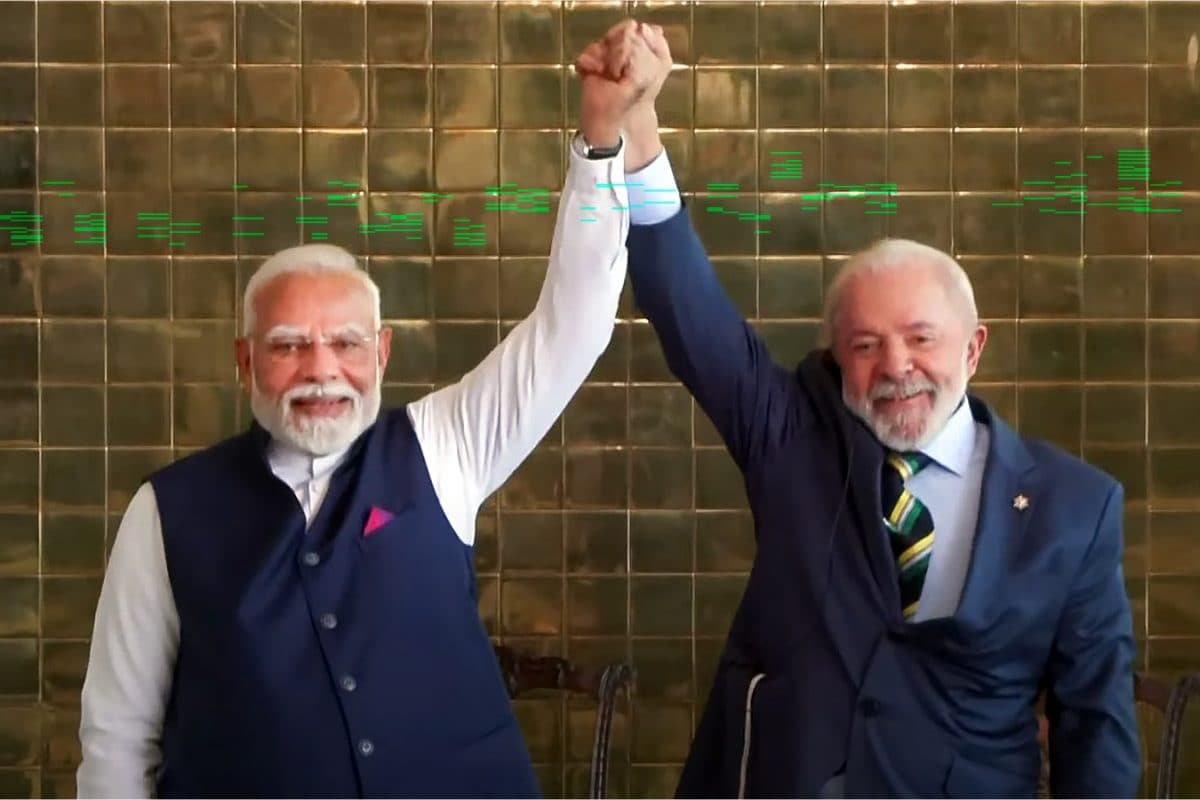

India and Brazil have set an ambitious goal to increase bilateral trade to $20 billion within the next five years, alongside forging key agreements on counter-terrorism, pharmaceuticals, and critical minerals. This commitment was solidified during Prime Minister Narendra Modi's state visit to Brasilia, where he met with Brazilian President Luiz Inácio Lula da Silva.
During the meeting, both leaders acknowledged the significant potential for diversifying and expanding trade between the two nations. To achieve the $20 billion target, they decided to elevate trade discussions and establish a ministerial-level mechanism to monitor trade, commerce, and investment-related matters. Modi also sought Brazil's support in expanding the India-Mercosur trade agreement, highlighting the mutual benefits that such an expansion could bring. President Lula conveyed Brazil's support and instructed his team to work towards this expansion.
In a joint press conference, Modi emphasized the importance of collaboration in agri-tech and value-added food exports, identifying them as sectors where both countries can complement each other. He also announced plans to enable the adoption of India's Unified Payments Interface (UPI) in Brazil, mirroring India's digital payments infrastructure. Key sectors identified for enhanced bilateral cooperation include agriculture, food processing, digital public infrastructure, and space technology.
Beyond trade, India and Brazil are strengthening cooperation in combating international terrorism and transnational crime. Six agreements were signed, including one specifically focused on this issue. Modi stressed the importance of "zero tolerance and zero double standards" regarding terrorism and its supporters. Both countries expressed their strong opposition to terrorists and those who support them.
The leaders also addressed cooperation in renewable energy, digital solutions, intellectual property, and the exchange of classified information. Modi noted the growing cooperation in the fields of Artificial Intelligence and supercomputers, highlighting the shared vision of inclusive development and human-centric innovation. Both countries are also working together on the adoption of UPI in Brazil, and India is willing to share its expertise in digital public infrastructure and space technology.
Furthermore, discussions covered collaboration in critical minerals, with both leaders reaffirming the importance of cooperation in the mining, beneficiation, processing, recycling, and refining of these minerals. They also encouraged oil and gas enterprises to engage in bilateral cooperation, including joint projects in offshore fields, and expressed willingness to achieve early production and tangible returns. Both leaders instructed their authorities to identify and address non-tariff barriers to facilitate bilateral trade.
During the visit, President Lula presented Prime Minister Modi with Brazil's highest civilian award, the Grand Collar of the National Order of the Southern Cross, recognizing his contributions to strengthening bilateral relations and enhancing cooperation across key global platforms.